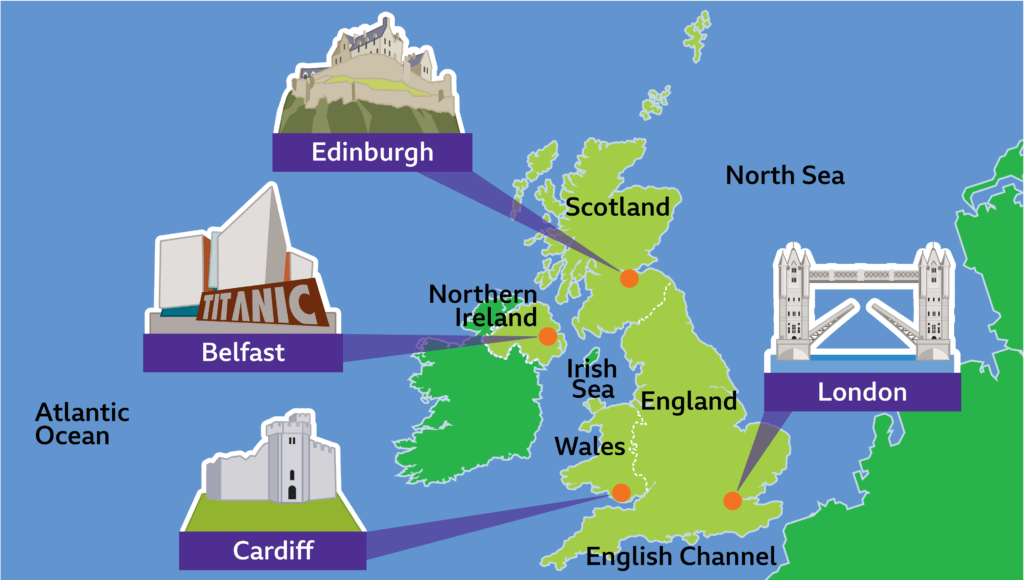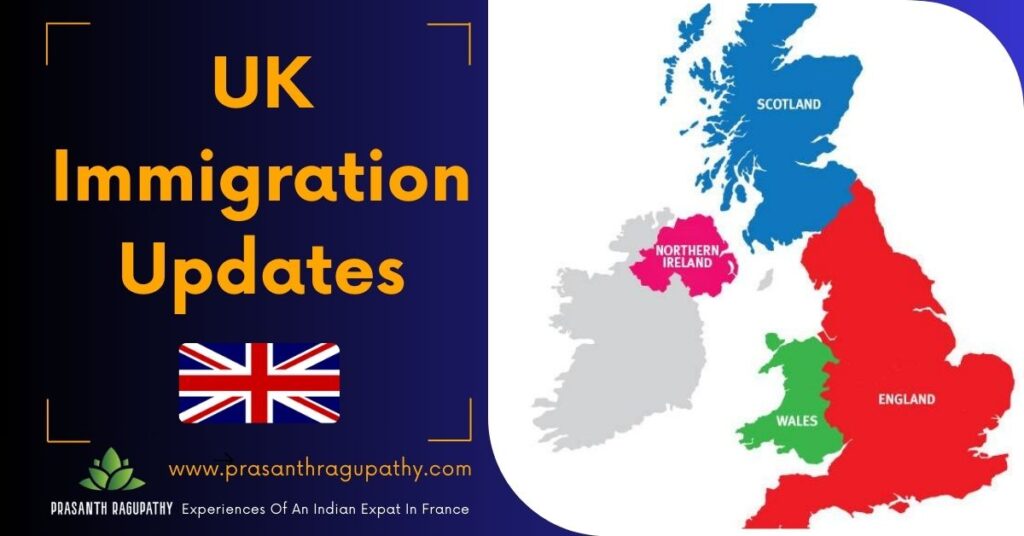Published on: September 30, 2024 | By: @rprasanth_kumar
In a bid to reduce migration and prioritize British workers, the UK government has introduced a series of new laws that target employers relying on cheap foreign labor. These reforms are part of a broader strategy to limit immigration, prevent wage suppression, and ensure that UK businesses invest in domestic talent. Here is a detailed explanation of the key changes and their implications for businesses, workers, and the UK economy.
Summary
- The UK introduces new migration laws to prioritize British workers and reduce foreign labor reliance.
- Skilled Worker visa salary threshold raised by 48%, from £26,200 to £38,700.
- Abolition of the Shortage Occupation List to ensure fair wages for UK and foreign workers.
- Introduced new “Immigration Salary List” for highly skilled roles.
- Social care workers are no longer allowed to bring dependents to UK on their visa.
- Increased minimum income for family visas from £18,600 to £38,700 by 2025.
- Review of the Graduate visa route to prevent system abuse and ensure it attracts top talent.
- Launches £2.5 billion “Back to Work Plan” to boost domestic employment and reduce net migration.
Topics Covered 📚
Increase in Salary Thresholds for Skilled Worker Visas
One of the most significant changes is the sharp increase in the general salary threshold for overseas workers on the Skilled Worker visa.
- Previously set at £26,200, this threshold has now risen by 48%, reaching £38,700 since 4th April 2024.
- By raising the salary threshold, the government seeks to attract only those foreign workers who can fill genuinely high-skilled positions, while encouraging businesses to look first at hiring and training local talent.
- This change is a crucial step in the government’s long-term goal of reducing the overall number of immigrants entering the UK workforce.
- For more details about the salary limits applicable for various professions, Skilled Worker visa: going rates for eligible occupation codes
Abolition of the Shortage Occupation List
Previously, the *Shortage Occupation List* allowed employers to pay overseas workers less than the going rate for certain roles, due to perceived shortages in those sectors.
- However, this list has now been abolished as part of the government’s efforts to ensure wage fairness.
- Employers can no longer justify paying foreign workers less than their UK counterparts simply because they are hiring for a role in high demand.
- Instead, a new “Immigration Salary List (ISL)” has been introduced, effective 4th April 2024.
- The ISL will include only roles that are both skilled and in shortage, but with a more rigorous evaluation process that factors in efforts by industries to train and hire British workers.
- The goal is to reduce reliance on immigration and push sectors to invest in the development of the local workforce.
Social Care Workers bringing Dependents
Social care workers, who were previously allowed to bring dependents (partners and children) to the UK under their visa, are now subject to stricter rules.
- As of 11th March 2024, social care workers can no longer sponsor dependents.
- This change follows concerns about the high number of dependents being brought to the UK, which the government believes contributed significantly to rising migration figures.
- According to government data, 120,000 dependants accompanied 100,000 social care workers in the year ending September 2023.
- The government’s new policy aims to reduce the strain on public services and housing caused by these large family units, while ensuring that care workers brought to the UK meet all job and salary requirements without relying on dependants.

Family Visas and Minimum Income Requirements
Another critical change is the increase in the minimum income required for sponsoring a spouse or partner under a family visa.
- Previously set at £18,600, the threshold has risen to £29,000 as of 11th April 2024, with plans to further increase this to £38,700 by early 2025.
- This change is intended to ensure that individuals bringing family members to the UK have the financial means to support them, thereby reducing potential strain on public resources like housing, healthcare, and social benefits.
- For visa extensions or permanent residence applications, both the applicant’s and sponsor’s income can be counted, but for initial applications from outside the UK, only the sponsor’s income is considered.
- If applicants fail to meet these income thresholds, they may still qualify through alternative means, such as having substantial savings.
Review of the Graduate Visa Route
The Graduate visa route, which allows international students to stay and work in the UK for two years after completing their studies, was also under review. However, concerns have been raised about potential abuse of the system, particularly by students attending institutions with lower academic requirements.
- The Migration Advisory Committee published its review of the Graduate visa on 14 May 2024.
- It found no evidence of significant abuse and recommended that the route stay open. By abuse, they meant deliberate non- compliance with immigration rules.
- However, some concerns were voiced over the use of recruitment agents by universities in certain markets in providing misleading information to prospective international students.
- The government took action in 2023 to reduce the number of dependants who were entering the UK on a student visa, mainly associated with one-year Masters’ programs.
- From January 2024, students on taught Masters’ programs have not been allowed to bring dependants on the student visa. Also, they will subsequently not be allowed to have dependants on the Graduate route.
The £2.5 Billion “Back to Work Plan”
Alongside these immigration reforms, the government has launched the *Back to Work Plan*, a £2.5 billion initiative designed to support long-term unemployed and disabled individuals in returning to the workforce.
- The plan includes funding for skills bootcamps, apprenticeships, and other training programs, with the goal of breaking down barriers to employment for over a million people.
- Work and Pensions Secretary Mel Stride highlighted the importance of tapping into the domestic workforce, stating, “For too long, we have relied on labor from abroad when there is great talent right here in the UK.”
- The government is determined to invest in the British workforce and reduce dependency on foreign labor, particularly in sectors that have historically relied on migrant workers.
Tackling Illegal Immigration
The government’s crackdown on immigration is not limited to legal routes.
- Efforts to address illegal migration are also underway, with a focus on reducing the number of small boat crossings and disrupting the criminal networks that facilitate illegal immigration.
- The government has reported that small boat crossings decreased by a third last year, reflecting the early success of its stepped-up enforcement measures.
Support This Blog!
If you’ve found my articles helpful, interesting or saving your time and you want to say thanks, a cup of coffee is very much appreciated!. It helps in running this website free for the readers.
Sources & References 📕
- UK immigration rules
- UK Legal Migration Volume 742: debated on Monday 4 December 2023
- Changes to legal migration rules for family and work visas in 2024
- New laws to cut migration and put British workers first in force
- Skilled Worker visa: going rates for eligible occupation codes
- International students in UK higher education: 2024
- Hidden in Plain Sight: The Real International Student Scandal
- Migration Advisory Committee’s report on the Graduate route


